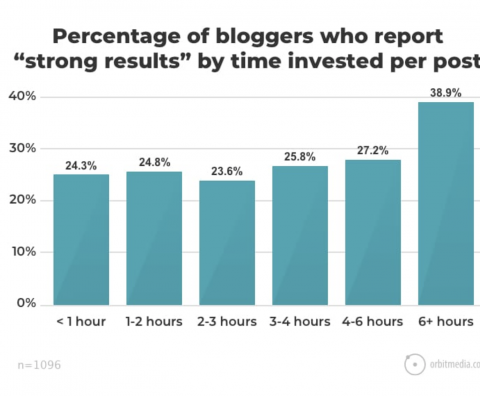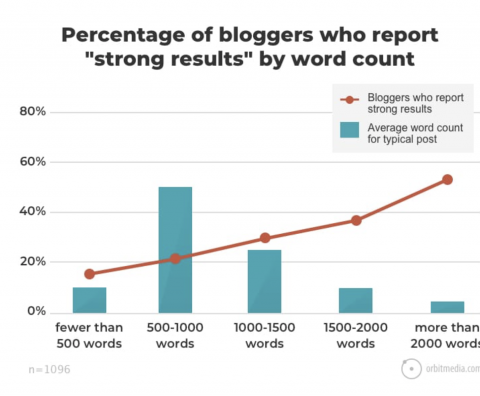A friend recently asked me what I do to maintain productivity in my writing. He is a small-business owner looking for hacks to help get more done so he can spend evenings with his family instead of plonking away at the keyboard. Writing is not his trade but he can write – and he writes all of his marketing material along with his website copy and a weekly blog.
Sound like anyone you know?
I gave my friend the same advice I gave Clare McDermott from Mantis Research when she asked me the same question for an article at Chief Content Officer magazine. Clare is a wonderful writer and one of the best editors I’ve ever worked with. She was initially surprised, then said my answer made perfect sense. She’d never thought about it as a productivity tool before.
My productivity hack has an added benefit of improving the quality of my writing, too. So, what is my secret weapon for improved writing? What is the one thing I do to make my final product better and get it published more quickly?

Without fail, I use a proofreader. The article you’re reading right now has been proofed by my copyeditor to make sure it’s as close to perfection as possible. (I know I’m probably jinxing myself here. Murphy’s Law says if you write anything about how to write better, obvious errors will be discovered after you publish.)
If you’ve never worked with a proofreader or a copyeditor, you might not appreciate the benefit of having someone you trust put a polish on your work. It might sound like a luxury but, believe me, professional writers consider it a necessity. I’m one of them.
Why go to the added expense of having a proofreader? First of all, it’s not an expense. My proofreader has saved me money in so many ways.

10 ways a proofreader saves your business money
Here are a few of the obvious cost savings when using a proofreader:
- I write faster when I know someone is going to proofread. I don’t have to worry about catching every little error.
- When I write faster with less internal editing, I’m more likely to stick in the sweet spot where the words flow out of my fingertips and writing becomes effortless.
- I no longer have to deliberate with myself or reference the Chicago Manual of Style to determine those niggly rules about commas, colons and semicolons.
- My proofreader uncovers mistakes a spellchecker won’t ever find like using ‘tenant’ when I mean ‘tenet’. Or when I mix up ‘complementary’ and ‘complimentary’. Or ‘effect’ and ‘affect’. Or ‘lie’ and ‘lay’. You know what I mean.
- I’m a good speller, but spelling changes depending on the country. My proofreader catches the times I use an American spelling for an Australian story, or a British spelling for an American story.
- Colloquialisms are kept in check, so you use them appropriately and sparingly for maximum effect.
- A proofreader will also point out when you’re mixing metaphors, using clichés and littering your copy with jargon your audience won’t understand.
- Inconsistencies in your own style are uncovered (e.g., Do you put job titles in upper-case or lower-case letters?
- A good proofreader – and I have one – tells when you’re about to confuse your reader or, worse, bore them to tears.
- I can write one article and have it converted into multiple English versions. For example, I can write an article for an American magazine and my proofreader will localise it for Australian and British audiences so I can publish it in multiple places.

Calculating the ROI of proofreaders
Some of these points convert to cost savings. I usually save about 10% of the time it takes to write an article when I use a proofreader compared to when I don’t. If you consider an average blog post takes about four hours to write – or 240 minutes, that’s a potential savings of 24 minutes you can have back to work on your business.

According to blogging research from Orbit Media, the best blogging results are occurring for bloggers who take more time writing and are writing longer blog posts. If you can save 10% of your writing time by using a proofreader and increase the quality of your work in the process, why not do it?

Another metric to consider is how often your writing gets picked up in traditional media or published by other brands. The better your writing, the more likely editors will want to work with you. I frequently get asked to contribute to publications because my copy comes through ‘clean’. In other words, when I submit something to an editor, they rarely have to do anything to it before they publish. If an editor is ever in a jam, they’ll first go to the people they know won’t need additional editing help. Proofreading pays dividends into the future.
The aftermath of poor writing
Productivity losses occur in other ways. When a customer finds an error – or I find one myself – someone has to make a correction. Even a quick fix like a typo is likely to take half an hour because you have to find it, fix it, repost it, test it and circle back to the person who reported it to you. And all of this is unlikely to be planned and scheduled time in your day. If there is no quick fix or you have to rewrite a sentence or a paragraph, the time needed adds up faster than you realise.
A quick fix is best-case scenario for writing errors. Poor writing or writing mistakes can cause real brand damage. The friend I mentioned at the top of this article is a competent writer. If you’re not, your readers may make the incorrect assumption you’re not good at your core business. Good writing is an asset to your business; poor writing can leave the wrong impression. If your website or marketing copy is poorly written, your prospective customers are likely to move to the next item in the search results – your competitor.

Good news, bad news . . . good news!
You may have done a little number crunching and discovered you could save a couple of hours a week by having a proofreader available. If more than one person in your organisation is writing to customers or for prospective customers, you might discover the ROI justifies a new hire on your team.
The reality for small business, however, is they can’t keep a proofreader or copyeditor busy on a full-time basis. It’s hard to work with freelancers and get maximum benefit. Your results get better and better the longer you work with the same person, so you want continuity, not flexibility.
But here’s the good news. As I mentioned before, I have a great proofreader. Everything I send out to customers goes through the same person. So does everything I write for my own marketing. Many of my customers have asked if they can send their own writing for proofing. In 2019, I’ve added a proofreading service to Global Copywriting. If you want to do your own writing but have someone look it over before you send it out, let’s have a chat. I know I can help you.

Where is proofreading used?
Some of the ways my customers are using a proofreading service include:
- In-house press releases
- Agency press releases (yep, not all agencies send clean copy through)
- Blog posts
- External email
- Company newsletters
- Website copy
- Product release notes
- Customer complaint responses
- Letters from the executive team
- Annual reports
- Academic theses
The list is long and varied but, essentially, anything you’re sending to a customer or using in your sales and marketing efforts, or using to represent your brand in the eye of the public should go through a proofreading exercise.
Final thoughts on proofreading
I’ve already shared some of the ways proofreading improves my productivity and the quality of the finished product. My livelihood depends on my ability to communicate effectively using the written word. I make a good living as a writer. For all my experience and expertise, I have yet to send an article to my proofreader when it didn’t come back with at least one error. Every. Single. Time.
I’m waiting for the day when the writing comes back clean with no changes. Until then, I’m using a proofreader so everything I publish or send to customers is perfect. (And, so I can spend more time with my own family!) If you’d like to learn more about proofreading, drop me a line or email me at sarah@globalcopywriting.com. We can usually turn things around in less than 24 hours so your production cycles aren’t slowed down. It might be all you need to go from mediocre to high-quality writing.


Recent Comments